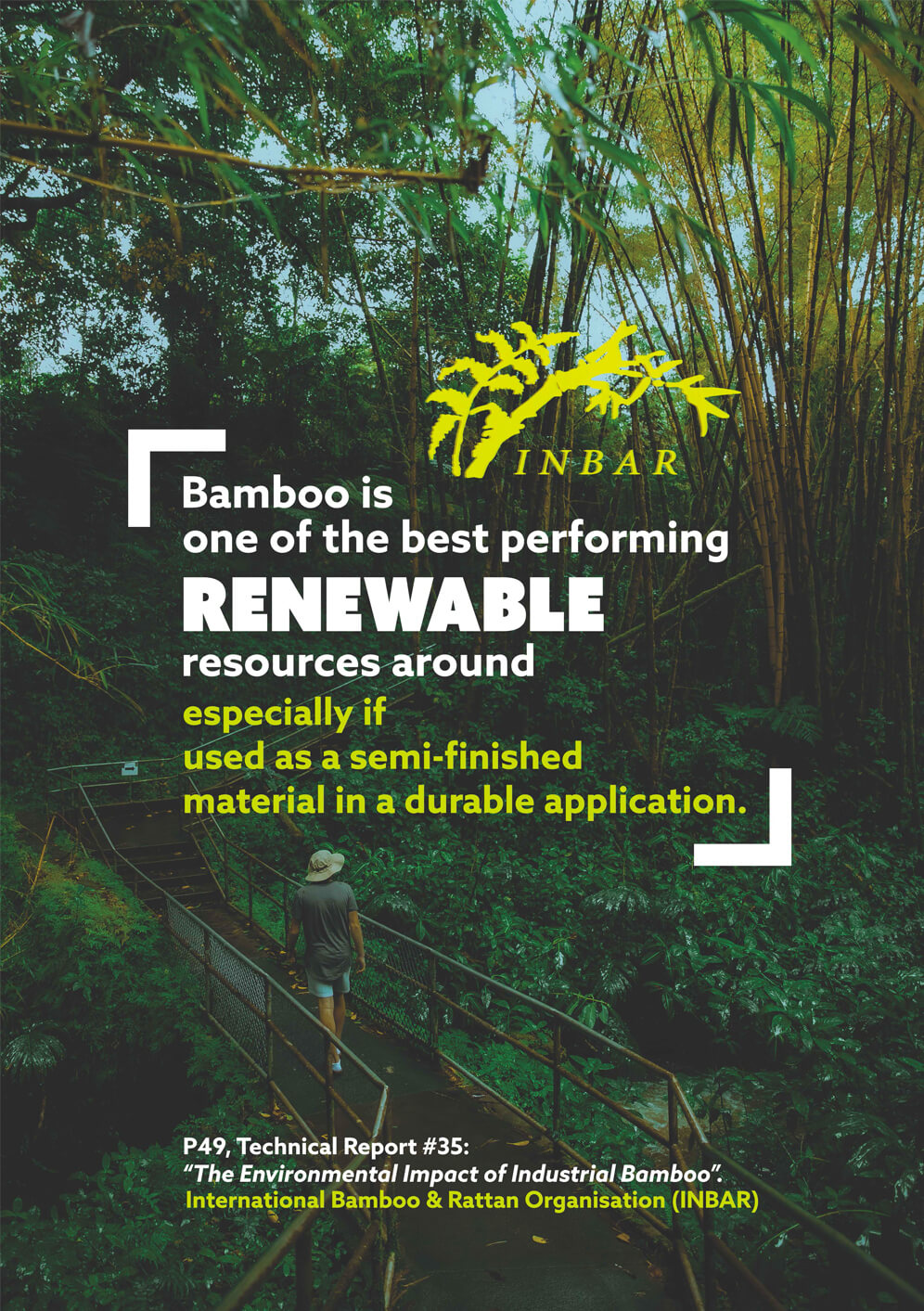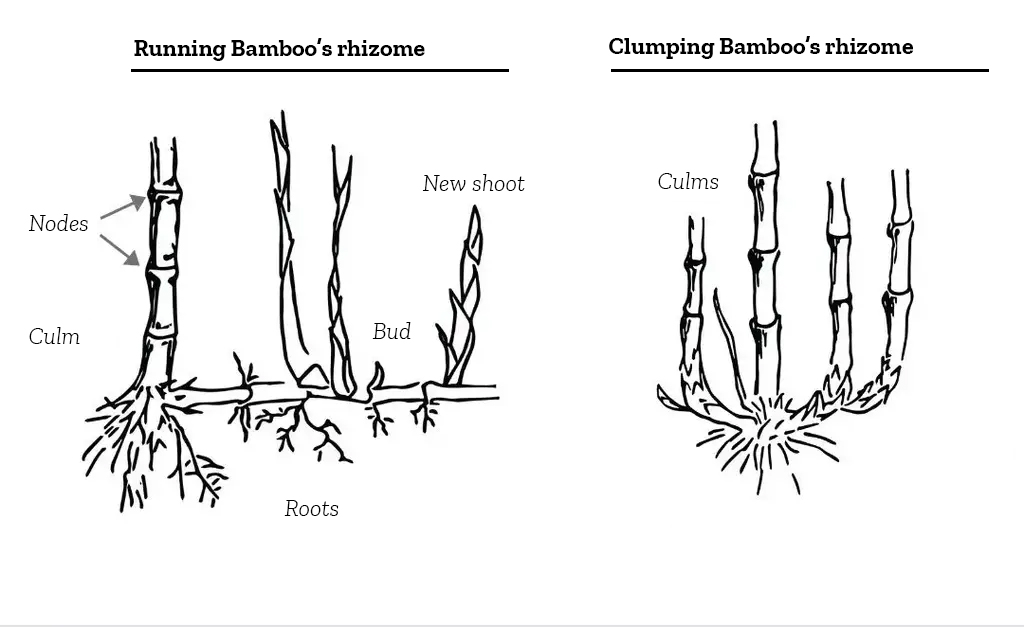Versatile material
An alternative to timber & unsustainable plastic
Fastest growing plant
Bamboo grows up to 1 metre in 24 hours ¹
35% more oxygen
More oxygen produced than trees. ²
Strong and durable
Some species are used in construction. ³
The benefits of bamboo are many. Here’s a snapshot:
Guadua Bamboo
With an extraordinary load bearing capacity (MOE 17204 N/mm²) and a higher tensile strength than steel (28,000 psi vs steel’s 23,000 psi), Guadua bamboo – a natural material – can rival a man-made construction material.
Global distribution
Bamboo is found almost all over the world, with species adapting to hot and cold climates. Where it is not available, it can be imported. A debated topic, research supports that bamboo offsets the carbon cost of importation.
Check out this map by Iowa State university showing bamboo’s global distribution.
Local economies
Bamboo is often found in developing nations. Teaching bamboo farming and harvesting techniques creates a positive multiplier effect, whereby employment is generated and the local area benefits. As bamboo grows back quickly, such employment doesn’t exploit the local area, unlike oil drilling.

INBAR Technical Report #35
More than just a giant grass, bamboo is an incredible material. According to Royal Botanic Gardens Kew, there are 1,642 species of bamboo discovered each with "remarkably different characteristics." That's 1,642 possibilities. And for a plant that's been demonstrated to be an effective tool in a strategy to mitigate climate change, the future is promising for bamboo.
As a supplier of bamboo, it is these benefits and characteristics of the material that made UK Bamboo Supplies fall in love with bamboo and want to champion its use in industry.
The fastest growing plant in the world
Contrary to popular belief, bamboo is actually a type of grass belonging to the family Poaceae.
In the right conditions, bamboo can grow 1 metre in 24 hours, making bamboo the world’s fastest growing plant!
According to the Guinness Book of World Records, the world’s tallest bamboo, Dendrocalamus Giganteus, is 50 metres (the size of an olympic swimming pool).
Click on the video to learn more about bamboo’s growth from BBC’s Wild China.
A sustainable material
Writing for the International Journal of Engineering Development and Research (IJEDR), R.K. Dutta concluded that “bamboo yield is 25 times higher than timber hardwoods like oak.” While European Oak takes approximately 80 years before the timber is harvest-ready, bamboo takes an average of 5 – 6 years.
This means that bamboo can keep up with supply and demand in ways that traditional timber cannot.
Bamboo’s lightning fast growth, combined with how it grows, makes the plant an effective tool against deforestation. All species of bamboo can be broken down into two broad categories: running and clumping.
Both bamboo types are rhizomatic, but in different ways. Unlike a tree, multiple culms grow from the root system. As long as the roots remain in tact, mature culms can be harvested without damaging the plant or releasing the sequestered carbon. With proper harvesting techniques and forest management, this means that bamboo provides a readily-available timber crop that does not contribute to deforestation. With the numerous culms, bamboo will almost grow back as fast as it is cut down.
We lose forests at a rate of 27 football fields per minute. Imagine how this statistic would change if bamboo was more widely adopted across industries.